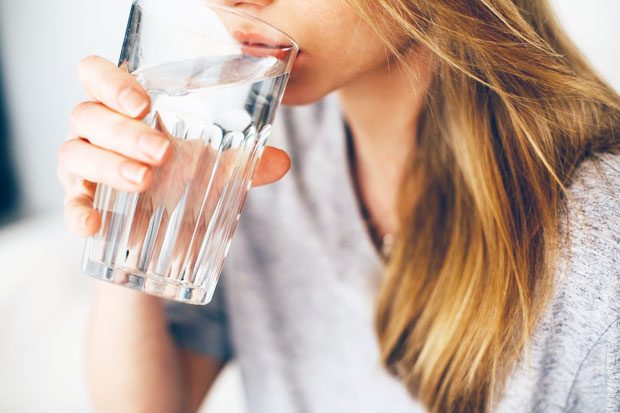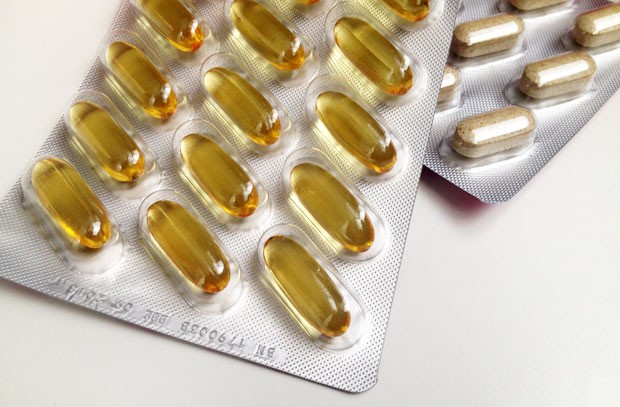Post-Pregnancy Nutrition: Recovering and Rebuilding After Childbirth

Post-Pregnancy Nutrition: Recovering and Rebuilding After Childbirth
Childbirth is a significant event that brings numerous physical and emotional changes to a woman’s body. Proper nutrition during the post-pregnancy period is crucial to support the body in recovering and rebuilding after childbirth. In this article, we will discuss the importance of post-pregnancy nutrition, the essential nutrients, and the macronutrient balance necessary for optimal recovery. We will also explore other vital aspects, such as hydration, nutritional support for breastfeeding mothers, healing foods, supplements, exercise, and meal-planning ideas. Let’s dive in and discover how proper nutrition can help women recover, build fitness, and maintain their health after childbirth.
The Importance of Post-Pregnancy Nutrition
Understanding the importance of nutrition after childbirth is crucial for new mothers. The body undergoes significant changes during pregnancy and continues to do so post-delivery, necessitating a focus on nutritional replenishment and recovery. Nutrition during this phase is not just about the mother’s recovery; it also plays a vital role in supporting overall well-being, including physical strength and mental health.
Resources like Baby Mam offer comprehensive support during this journey. Their platform provides tailored training videos, aligning with specific pregnancy stages, to aid in maintaining health and functional body dynamics during and after pregnancy. Additionally, the knowledge section, packed with over 100 articles covering various topics such as health, dietary advice, and post-birth experiences, offers invaluable guidance.
Moreover, Baby Mam’s personalized approach includes features like a diary, a pregnancy tracker, and interactive tools to record feelings, cravings, and personal milestones. This holistic approach ensures that nutritional guidance is not just about diet but encompasses all aspects of a new mother’s journey, offering a well-rounded support system for post-pregnancy recovery and well-being.

Essential Nutrients for Post-Pregnancy Recovery
Post-pregnancy recovery requires essential nutrients to aid in the healing process and support overall well-being. Some essential nutrients that women should consume after childbirth include:
- Iron: Women lose a significant amount of blood during childbirth, leading to a decrease in iron levels. Consuming iron-rich foods like spinach, red meat, and lentils can help replenish iron levels.
- Calcium: Breastfeeding mothers require adequate calcium to produce milk and support their bone health. Good sources of calcium include dairy products, leafy greens, and fortified foods.
- Omega-3 fatty acids: These healthy fats improve brain function and reduce inflammation, which is particularly important during the postpartum period. Sources of omega-3 fatty acids include fatty fish, nuts and seeds, and algae-based supplements.
Ensuring a well-rounded diet with these essential nutrients can help women recover and rebuild their bodies after childbirth.
Balancing Macronutrients for Optimal Recovery
A balanced diet is essential for post-pregnancy recovery. The right proportions of macronutrients, including carbohydrates, proteins, and fats, can aid in restoring strength and energy levels.
Carbohydrates are important as they provide the body with energy. Choose complex carbohydrates, such as whole grains, to keep you feeling full for longer periods. Proteins are key to repairing and rebuilding tissue, so include sources like lean meats, fish, eggs, and legumes in your diet. Fats also play a crucial role in recovery by providing energy and supporting hormone production. Opt for healthy fats, such as those found in nuts, avocados, and fatty fish.
When planning your meals, aim for a balanced plate that includes all three macronutrients. Consulting with a registered dietitian can also be helpful to ensure that you’re getting the right nutrients in the right amounts.
Remember, a balanced diet isn’t about depriving yourself or following strict rules. Instead, focus on incorporating a variety of nutrient-dense foods into your meals to promote optimal post-pregnancy recovery.

Hydration for Post-Pregnancy Healing
Staying hydrated is essential for the body’s overall function and well-being, especially during the post-pregnancy period. Adequate water intake aids in flushing out toxins from the body, maintaining healthy skin, and promoting healing after childbirth.
It is recommended for women to drink at least 8-10 glasses of water per day to stay hydrated. However, this may vary depending on individual needs and circumstances. For example, if a woman is breastfeeding, her water intake needs will be higher as she loses more fluids while nursing.
Aside from water, other hydrating options such as coconut water, herbal teas, and fresh juices can also be included in a woman’s post-pregnancy diet. These options provide the body with essential vitamins and minerals, along with hydration, to promote healing and recovery.
Proper hydration is also vital for lactation, as breast milk production requires a significant amount of water consumption. Therefore, ensuring adequate hydration is essential for both a mother’s and her baby’s well-being.
In summary, drinking enough water and other hydrating fluids is crucial for post-pregnancy healing and recovery. Introducing hydrating options into meals and snacks can help maintain proper water intake and promote healing for new mothers.

Nutritional Support for Breastfeeding Mothers
While breastfeeding is a natural process, it requires a lot of energy and can have higher nutritional demands on the mother’s body. To support lactation and maintain her health, a breastfeeding mother needs to pay attention to her nutrition.
Incorporating a variety of nutrient-dense foods, such as whole grains, lean proteins, fruits, and vegetables, can help a breastfeeding mother meet her daily nutritional requirements. In particular, it’s essential to consume enough calories, protein, and healthy fats to support milk production and the recovery process.
It’s also crucial for breastfeeding mothers to stay hydrated. Drinking plenty of water and other healthy fluids, such as milk and herbal teas, can help prevent dehydration and support milk production.
In some cases, a breastfeeding mother may require additional nutritional support. Taking a multivitamin or supplement, such as omega-3 fatty acids or iron, can help fill any nutritional gaps that may be present in her diet.
Consulting with a registered dietitian or healthcare professional can also help ensure a breastfeeding mother is receiving adequate nutritional support. They can provide specific recommendations based on her unique needs and circumstances.

Post-Pregnancy Meal Planning Ideas
Meal planning can be a game-changer for new moms. Ensuring that you have nutritious meals prepared ahead of time can save time and reduce stress during the post-pregnancy period. Here are some healthy recipe ideas to help you plan your meals and cater to your post-pregnancy nutritional needs:
Breakfast Ideas:
- Spinach and Feta Omelet: Filled with protein, vitamins, and minerals.
- Green Smoothie Bowl: Loaded with antioxidants, fiber, and phytonutrients to help with digestion and energy levels.
- Chia Seed Pudding: Rich in healthy fats, fiber, and calcium.
Lunch Ideas:
- Grilled Chicken Salad: Perfect combination of protein, healthy fats, and greens.
- Quinoa and Roasted Vegetable Bowl: Rich in fiber, vitamins, and minerals.
- Tuna Melt: Packed with protein, healthy fats, and omega-3s.
Dinner Ideas:
- Salmon and Sweet Potato: High in protein, omega-3s, and essential minerals.
- Chicken Stir-Fry: Rich in protein, fiber, and essential nutrients.
- Vegetable Curry: Loaded with antioxidants, vitamins, and minerals.
Remember to consult your doctor or nutritionist before making any significant changes to your diet, especially during the post-pregnancy phase. With these meal planning ideas, you’ll be able to stay on top of your nutritional needs and pave the way for a healthy and speedy recovery.

Exercise and Post-Pregnancy Nutrition
During the post-pregnancy recovery period, exercise and proper nutrition go hand-in-hand to support women’s physical and mental well-being.
Incorporating regular exercise into a post-pregnancy routine helps stimulate blood flow, increase energy levels, and promote restful sleep. However, it’s essential to fuel the body with nutrient-dense foods to ensure a speedy recovery and avoid nutrient deficiencies.
Consuming adequate amounts of protein, healthy fats, and carbohydrates provides the body with the energy it needs to fuel exercise routines and support post-pregnancy recovery. Additionally, staying hydrated is crucial for maintaining physical performance levels and reducing the risk of injury during exercise.
Overall, exercise and post-pregnancy nutrition are complementary components of a healthy recovery routine. By nourishing the body with a balanced, nutrient-dense diet, women can optimize their exercise routines, promoting healthy recovery and rebuilding after childbirth.

Conclusion
Post-pregnancy nutrition plays a critical role in the recovery and rebuilding process for women after childbirth. Adequate nutrition can help the body heal faster, prevent complications, and support the physiological changes that occur during this period.
By understanding the importance of post-pregnancy nutrition, women can make informed choices about their diet and lifestyle that promote optimal recovery. Essential nutrients like iron, calcium, and omega-3 fatty acids, as well as macronutrients like carbohydrates, proteins, and fats, should be consumed in balanced proportions to support the body’s recovery.
Staying hydrated is also crucial for post-pregnancy healing, and breastfeeding mothers must pay extra attention to their nutritional needs to nourish themselves and their babies adequately.
By incorporating healing foods, meal planning ideas, and supplements, women can support their body’s recovery and replenish the nutrients lost during childbirth. Moreover, proper nutrition can also enhance the effectiveness of exercise routines that are essential for regaining strength and fitness during the recovery process.
Guest Article.




